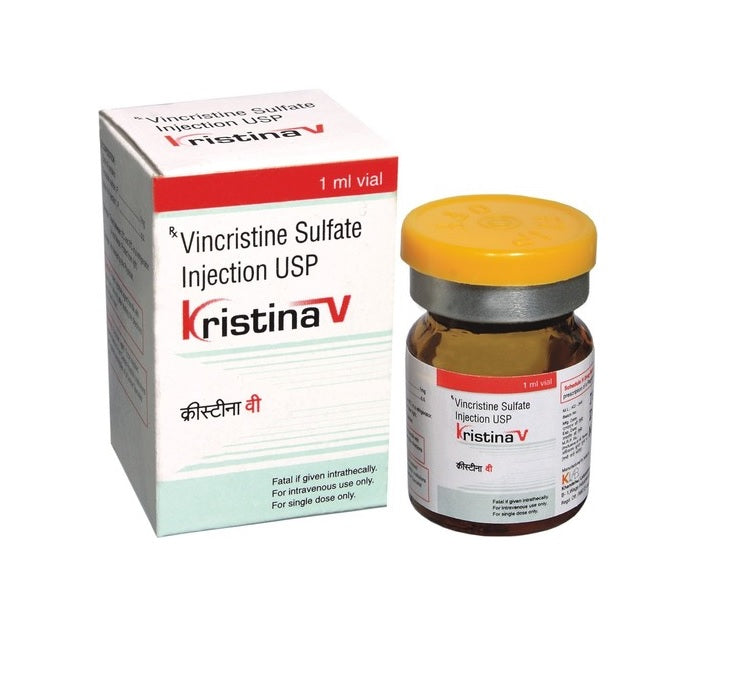Velban (Vinblastine) Vial
Generic
Vinblastine (Generic Equivalent to Velban)
Velban Vial is an anti-cancer medication used in the treatment of breast cancer, kidney cancer, Hodgkin’s disease, and Non-Hodgkin’s lymphoma.
Velban Vial is given as an Vial into the vein under the supervision of a doctor. Your doctor will decide what dose is necessary and how often you need to take it. This will depend on what you are being treated for and may change from time to time. You should take it exactly as your doctor has advised. Taking it in the wrong way or taking too much can cause very serious side effects. It may take several weeks or months for you to see or feel the benefits but do not stop taking it unless your doctor tells you to.
The most common side effects of this medicine include nausea, vomiting, diarrhea, and decreased appetite. This medicine may reduce the number of blood cells (white blood cells) in your blood, thereby, increasing the susceptibility to infections and fever. In some cases, it may also cause kidney disease related to uric acid level. Regular blood tests are required to check your blood cells along with heart, liver, and blood uric acid levels.
Many other medicines can affect, or be affected by, this medicine so let your doctor know all medications you are using. This medicine is not recommended during pregnancy or while breastfeeding. The use of effective contraception by both males and females during treatment is important to avoid pregnancy. You should take precautions while taking this medication as it may cause inflammation of mouth and lips and neurological toxicity.
Uses Of Velban Vial
- Non-Hodgkin lymphoma (NHL)
- Breast cancer
- Kidney cancer
- Hodgkin’s disease
Benefits Of Velban Vial
In Non-Hodgkin Lymphoma (Nhl)
Non-Hodgkin’s lymphoma is a cancer of the white blood cells in our body, also called mantle-cell lymphoma. White blood cells are those cells that help us to fight infections. Velban Vial helps to restrict cancer growth and also blocks the action of other chemicals that are required for cancer growth and further spread. Avoid being in crowds and wash your hands often to prevent any infections. Have plenty of fluids, unless otherwise advised by the doctor not to.
Side Effects Of Velban Vial
Most side effects do not require any medical attention and disappear as your body adjusts to the medicine. Consult your doctor if they persist or if you’re worried about them.
Common Side Effects Of Velban
- Nausea
- Vomiting
- Decreased appetite
- Decreased white blood cell count
- Diarrhea
How To Use Velban Vial
Your doctor or nurse will give you this medicine. Kindly do not self administer.
How Velban Vial Works
Velban Vial blocks replication of genetic material (DNA) in the cancer cells. Thus it stops the growth and multiplication of cancer cells.
| Disclaimer :
The information provided on the website is intended to facilitate awareness about healthcare products and medical conditions generally but it is not a substitute for professional medical attention or advice. You should always speak with a qualified healthcare practitioner before taking any prescription or non-prescription drug. |

